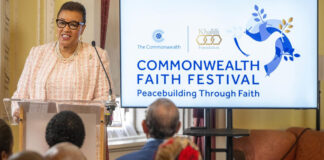Texas, USA (CU)_ On Tuesday, Indian-American organizations condoled the death of Father Stan Swamy, who was a social activist who sacrificed his life aiding India’s underprivileged tribals. Swamy, who was arrested in connection with the Elgar Parishad case last year under the Unlawful Activities (Prevention) Act, passed away on Monday at the age of 84.
Father Stan Swamy was a Jharkhand-based Jesuit priest and tribal rights activist. He had been serving in the state for more than thirty years on several tribal problems such as land, forest, and labor rights. This involves raising concerns about the non-implementation of the Constitution’s Fifth Schedule, which called for the establishment of a Tribes Advisory Council composed primarily of members of the adivasi community for their safety, well-being, and development in the state.

In a statement, the Federation of Indian American Christian Organizations of North America (FIACONA) described him as a valiant man who fought relentlessly to defend and assist tribals in India. FIACONA said, “A simple and an unassuming man, Fr Swamy stood his ground against a system that is bent on exploiting the poor tribals and their sovereign rights to their resources”. Swamy was afflicted with Parkinson’s disease as well as a number of other illnesses. Swamy had also contracted COVID-19 while in jail.
George Abraham, vice-chairman of the Indian Overseas Congress, condemned the government. A statement from him said, “It is a dark day for democracy in India, and the national leadership and members of the judiciary should hang their heads in shame”. He added, “Father Swamy’s detention and treatment in prison that led to his death is a blot on the consciousness of the nation and a travesty of justice”.

According to the INOC, it is important to consider many other human rights activists who fought for the justice of deprived people and are still imprisoned. It said, “We can only hope the passing of Father Stan Swamy may reopen the mindset of those in power to release those on bail while awaiting charges”.







